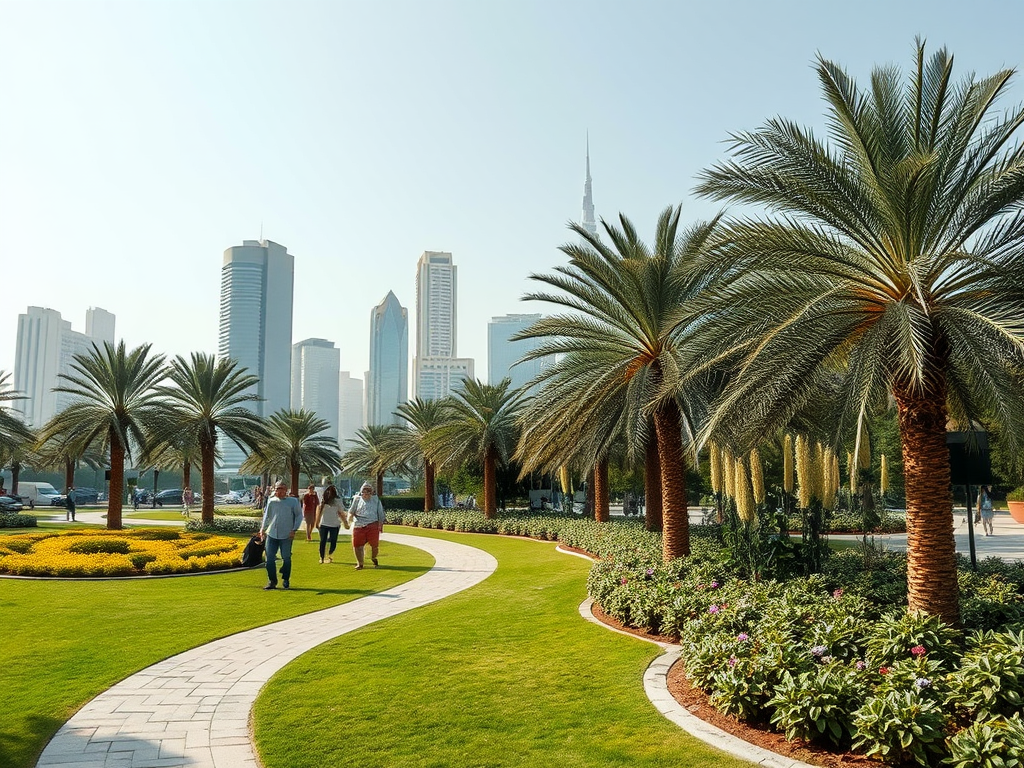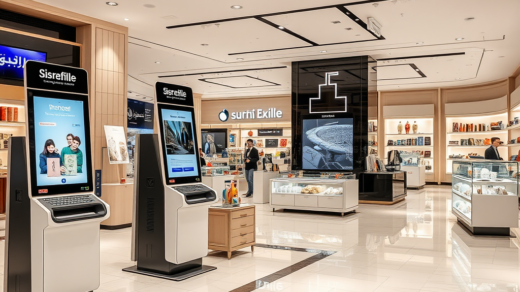Dubai is rapidly establishing itself as a global hub of technological innovation, with Artificial Intelligence (AI) playing a pivotal role in the city’s ambitious smart city development plans. AI technologies are revolutionizing various sectors, from transportation and healthcare to governance and energy management, creating a more efficient, sustainable, and interconnected urban environment.
One industry that has significantly benefited from AI advancements is e-commerce Dubai. AI-powered solutions are enhancing customer experiences, optimizing supply chains, and streamlining digital transactions, making Dubai a leader in online retail and digital commerce.
This article explores the innovative applications of AI in Dubai’s smart city initiatives, highlighting how these advancements are transforming urban living and setting new global standards. Additionally, we’ll examine how AI is shaping the future of e-commerce, driving efficiency, and enabling businesses to thrive in Dubai’s rapidly evolving digital economy.
Enhancing Urban Mobility with AI

Dubai’s transportation system is one of the most significant areas benefiting from AI integration. Smart traffic management systems, powered by AI, can analyze real-time traffic data, adjusting signals to reduce congestion and improve traffic flow. This results in quicker commutes and less pollution, directly aligning with Dubai’s sustainability goals. In addition to traffic management, AI is optimizing public transport systems, including the Dubai Metro and bus services. Here’s how AI is making a difference in urban mobility:
- Real-time public transport updates.
- Intelligent route planning based on demand.
- Automated toll collection systems.
- Ride-sharing algorithms that enhance carpooling.
- Predictive maintenance for vehicles to ensure safety.
Transforming Public Services through AI

AI is not just streamlining mobility; it is also revolutionizing public services. The Dubai government employs AI-driven chatbots and virtual assistants, allowing residents to access essential services swiftly and efficiently. This advancement significantly reduces the workload for government employees and enhances citizen satisfaction. Furthermore, AI technologies enable predictive analysis for better resource allocation in areas such as waste management and emergency services. The impact on various public sectors includes:
- Deployment of AI in health services for precise diagnostics.
- Smart energy grid management, optimizing consumption.
- Robotic systems for maintaining public parks and spaces.
- Enhanced safety measures through surveillance systems.
- 24/7 availability of government services online.
AI-Driven Urban Safety Initiatives
Safety remains a top priority in any smart city, and Dubai utilizes AI to bolster its security protocols. The integration of AI-based surveillance systems allows for real-time monitoring, aiding law enforcement in maintaining public safety. AI uses facial recognition technology and behavioral analysis to identify suspicious activities or potential threats, facilitating a swift response. Key elements of Dubai’s AI-driven safety strategies include:
- Advanced analytics for crime pattern identification.
- Smart street lighting that adjusts brightness based on activity.
- AI in disaster management to predict and respond effectively.
- Emergency response systems utilizing AI for streamlined operations.
- Community engagement platforms fostering communication between citizens and authorities.
Dubai’s commitment to environmental sustainability is markedly enhanced by AI technologies. Smart systems monitor air quality, manage water resources, and track energy usage, allowing for more informed decision-making. The city is embracing green technology through AI applications that encourage sustainable practices amongst its residents. Some notable implementations are:
- AI algorithms for water leak detection, minimizing waste.
- Sensors that provide real-time data on pollution levels.
- Energy efficiency programs that use AI to optimize consumption.
- Predictive modeling for renewable energy utilization.
- Smart waste management systems that improve recycling rates.
Conclusion
As Dubai continues to evolve into a leading smart city, AI plays a transformative role in shaping its infrastructure, enhancing daily living, and achieving sustainability goals. The city’s strategic investment in AI technology not only paves the way for improved urban management but also sets a precedent for how smart technologies can be effectively employed to address the challenges of contemporary city life. Through its AI initiatives, Dubai is not merely adopting a technological upgrade; it is creating an intelligent ecosystem that prioritizes the welfare of its residents and champions environmental responsibility. The future of urban living in Dubai looks promising, with AI leading the charge towards a smarter, safer, and more sustainable city.
Frequently Asked Questions
1. What are the primary benefits of AI in Dubai’s smart city initiatives?
The primary benefits of AI in Dubai’s smart city initiatives include improved traffic management, enhanced public services, increased urban safety, and advancements in environmental sustainability.
2. How does AI improve urban mobility in Dubai?
AI enhances urban mobility through real-time traffic analysis, intelligent public transport planning, automated toll systems, and predictive maintenance of transport infrastructure.
3. What role does AI play in public safety in Dubai?
AI facilitates public safety by implementing advanced surveillance systems, predictive crime analytics, and emergency response strategies, ensuring a proactive approach to crime prevention.
4. How are environmental issues addressed through AI in Dubai?
AI addresses environmental issues by monitoring air quality, managing energy consumption, detecting water leaks, and supporting recycling efforts through smart waste management systems.
5. Is AI technology in Dubai contributing to economic growth?
Yes, AI technology contributes to economic growth in Dubai by fostering innovation, attracting investment, creating new job opportunities, and enhancing the overall efficiency of urban operations.


